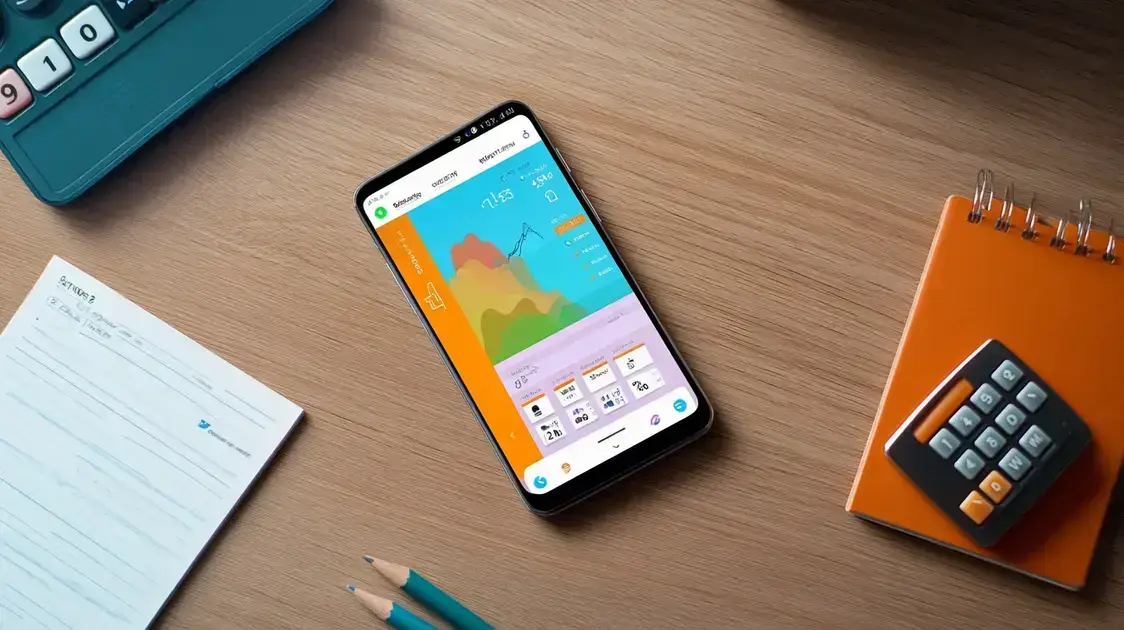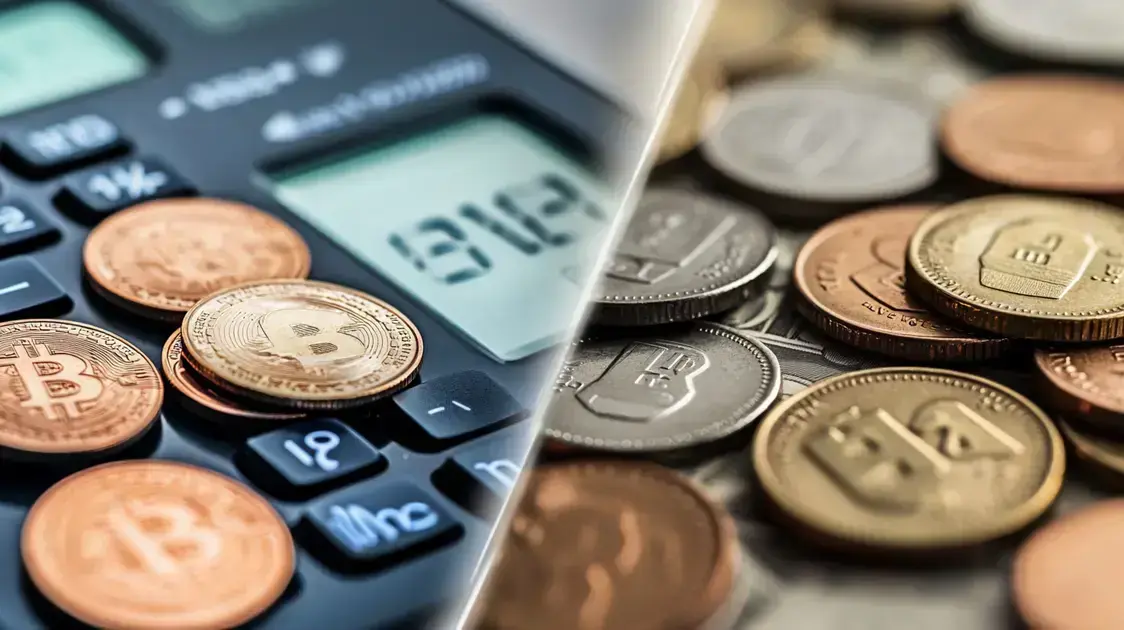Managing your money can be easier with the best budgeting and personal finance apps. These tools help you track spending, set goals, and improve your financial health.
In today’s fast-paced world, it’s crucial to have a reliable app to stay on top of your finances. The best budgeting and personal finance apps offer everything you need, from expense tracking to budgeting insights.
Want to know which app is right for you? Let’s dive into the top features and options that can make managing your finances a breeze.
Top Features to Look for in Budgeting Apps
When choosing the right budgeting app, there are several key features you should consider to ensure it meets your personal finance needs. The best budgeting and personal finance apps are designed to help you stay organized and reach your financial goals more easily.
1. User-Friendly Interface
A simple and intuitive interface makes it easier to navigate the app and track your finances without confusion. Look for apps that offer easy access to the features you need most.
2. Expense Tracking
One of the best features of budgeting apps is the ability to track your daily expenses. The app should allow you to categorize expenses and provide clear insights into your spending habits.
3. Goal Setting
The ability to set financial goals is essential. Whether you’re saving for a vacation or paying off debt, your app should let you create and track your goals easily.
4. Customizable Budgeting Options
Everyone has a different financial situation. Look for an app that allows you to customize your budget based on your income and specific spending habits.
5. Reporting and Analytics
Good budgeting apps provide reports and analytics that help you understand your financial health over time. Visual representations like graphs and charts can make it easier to see your progress.
6. Security Features
Your financial information must be secure. Choose apps that use strong encryption and have a good reputation for protecting user data.
By ensuring that your app includes these key features, you can better manage your finances with the best budgeting and personal finance apps to achieve your financial goals.
Best Budgeting Apps for iPhone
If you are an iPhone user looking to manage your finances effectively, here are some of the best budgeting and personal finance apps to consider:
1. Mint
Mint is a free budgeting app that helps you set financial goals and track your spending. It automatically categorizes your expenses and provides a comprehensive view of your financial health.
2. YNAB (You Need A Budget)
YNAB is designed to help users take control of their money. With a focus on proactive budgeting, it teaches users how to allocate every dollar and plan for unexpected expenses. Subscription fees apply.
3. PocketGuard
PocketGuard simplifies budgeting by showing you how much disposable income you have after bills, goals, and necessities. This app helps prevent overspending and keeps your spending in check.
4. EveryDollar
EveryDollar is based on the zero-based budgeting philosophy. Users allocate every dollar to a category, ensuring all money has a purpose. The app offers a free version as well as a paid version with additional features.
5. GoodBudget
GoodBudget is an envelope budgeting app that allows users to create virtual envelopes for different spending categories. You can sync your envelopes across devices, making it easy for couples to manage shared expenses.
6. Wally
Wally is a user-friendly budgeting app that helps you track your expenses visually. It also offers insightful reports and can take scans of receipts, streamlining the expense tracking process.
These apps offer various features, so it’s essential to choose one that fits your financial habits and goals. With the best budgeting and personal finance apps, you’ll be able to manage your finances effectively and stay on top of your goals.
Best Budgeting Apps for Android

If you’re looking for the best budgeting and personal finance apps for Android, here are some top choices to help you manage your finances efficiently:
1. Mint
Mint is a versatile budgeting app that syncs with your bank accounts and categorizes expenses automatically. It helps you monitor your finances in real-time and set budget goals.
2. YNAB (You Need A Budget)
YNAB is well-known for its proactive budgeting approach. It guides users in assigning every dollar a role, encouraging saving and debt management. A subscription fee is required.
3. PocketGuard
PocketGuard provides a simple way to see how much money you have available after expenses and savings goals. The app helps you control spending and avoid overspending.
4. everyDollar
Designed around zero-based budgeting, everyDollar allows users to plan their budget from the ground up. The app offers both free and premium versions with extra features.
5. GoodBudget
GoodBudget uses the envelope system for budgeting, where users can create virtual envelopes for various spending categories. This app helps keep your spending organized and on track.
6. Wally
Wally allows users to track their expenses and income easily, providing insights into their spending habits. The app also lets you scan receipts for easier record-keeping.
Each app has unique features, making it essential to find one that aligns best with your financial needs and preferences. With the best budgeting and personal finance apps, you’ll be equipped to manage your finances with ease and confidence.
Personal Finance Apps for Beginners
For those just starting in personal finance, finding the right personal finance apps can help you build good habits. Here are some highly recommended apps for beginners:
1. Mint
Mint is perfect for beginners as it automatically pulls your bank transactions and categorizes your spending. Its easy-to-read interface allows you to track your budget and spending effortlessly.
2. YNAB (You Need A Budget)
YNAB teaches users how to manage their money and allocate every dollar. With an emphasis on proactive budgeting, it’s a great tool for beginners willing to learn. A subscription fee applies.
3. PocketGuard
PocketGuard helps you understand how much money you have left after covering bills and essentials. This simplistic approach is excellent for beginners who want to avoid overspending.
4. GoodBudget
GoodBudget employs the envelope budgeting method, where you can set aside money for specific categories. This visual system is appealing to new users who enjoy tangible tracking.
5. Wally
Wally is a user-friendly app for beginners to track expenses and income easily. It allows users to scan receipts for a simple and organized way to manage finances.
6. Personal Capital
Personal Capital combines budgeting and investment tracking. This app is great for beginners looking to get insights into their spending while also planning their investment journey.
These apps provide a solid introduction to managing personal finances, ensuring that beginners can easily build and maintain good financial practices. By using these personal finance apps, you’ll have the tools you need to stay on top of your finances from the start.
Easy-to-Use Budgeting Tools
Finding easy-to-use budgeting tools can make managing your finances much simpler. Here are some of the best options available:
1. Mint
Mint is a widely-used budgeting tool that automatically syncs with your bank and credit accounts. It categorizes your transactions and provides a clear overview of your spending, making it accessible for everyone.
2. GoodBudget
GoodBudget uses the envelope budgeting method, where you allocate money to different categories or “envelopes.” It’s simple to use and encourages mindful spending.
3. Wally
Wally is a straightforward app for tracking expenses and incomes effortlessly. It offers a clean interface that’s easy for beginners to understand and use effectively.
4. EveryDollar
EveryDollar allows you to create a monthly budget with ease. This app uses a zero-based budgeting approach, where you assign every dollar a job. Its user-friendly layout helps you track your progress.
5. PocketGuard
PocketGuard shows you how much money you can spend after covering your bills and savings goals. Its simple design helps you keep your finances organized, making it stress-free for users to manage their budget.
6. YNAB (You Need A Budget)
YNAB offers an intuitive platform for new users to learn about budgeting. While it requires a subscription, the educational resources and personalized budgeting help make it a worthy investment.
With these tools, you can easily stay on top of your finances and develop good money management habits.
Comparing Free vs. Paid Personal Finance Apps

When choosing a personal finance app, you might wonder about the advantages of free vs. paid options. Each has its own benefits, and it’s important to know what might work best for your financial needs.
Free Personal Finance Apps
Free apps often provide essential budgeting features without any cost. They allow you to track your expenses, set budgets, and sometimes even sync with your bank accounts. However, they might include advertisements or limited functionality. Examples include Mint and PocketGuard.
Advantages of Free Apps
- No cost: You can access personal finance tools without any payment.
- Basic features: They often cover all your daily budgeting needs.
- Good for beginners: Free apps are ideal if you are just starting to manage your finances.
Paid Personal Finance Apps
Paid apps typically offer more advanced features and enhanced security. They might include tools like investment tracking, detailed reports, and personalized financial advice. YNAB and EveryDollar are popular examples of paid apps.
Advantages of Paid Apps
- Advanced features: More options for tracking and analyzing your financial data.
- No ads: These apps usually run ad-free for a smoother experience.
- Support and updates: Paid subscriptions often come with customer support and regular app updates.
Ultimately, the choice between free and paid best budgeting and personal finance apps depends on your financial goals and how in-depth you want your budgeting experience to be.
FAQ – Frequently Asked Questions about Budgeting and Personal Finance Apps
What are the best budgeting apps for beginners?
Some of the best budgeting apps for beginners include Mint, YNAB, PocketGuard, and GoodBudget. These apps help users track their expenses and set financial goals.
Are free budgeting apps sufficient for managing finances?
Yes, free budgeting apps can provide essential features like expense tracking and budgeting. However, they may have ads and limited functionality compared to paid apps.
What advantages do paid personal finance apps offer?
Paid personal finance apps often include advanced features, enhanced security, and customer support, making them suitable for users looking for more in-depth financial management.
Is it better to use a budgeting app or a spreadsheet?
The choice depends on personal preference. Budgeting apps are user-friendly and automate tracking, while spreadsheets offer more customization but require manual input.
How can I ensure my financial data is secure?
Choose apps that use encryption and have a good reputation for data security. Always keep your software updated and use strong passwords.
Can I sync my bank account with budgeting apps?
Most budgeting apps allow you to sync your bank accounts to automatically track expenses and categorize transactions.